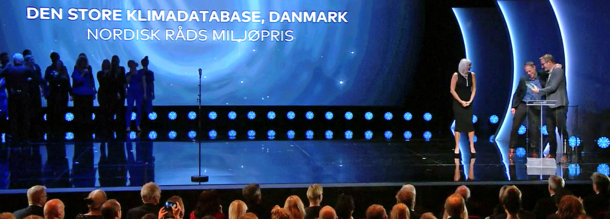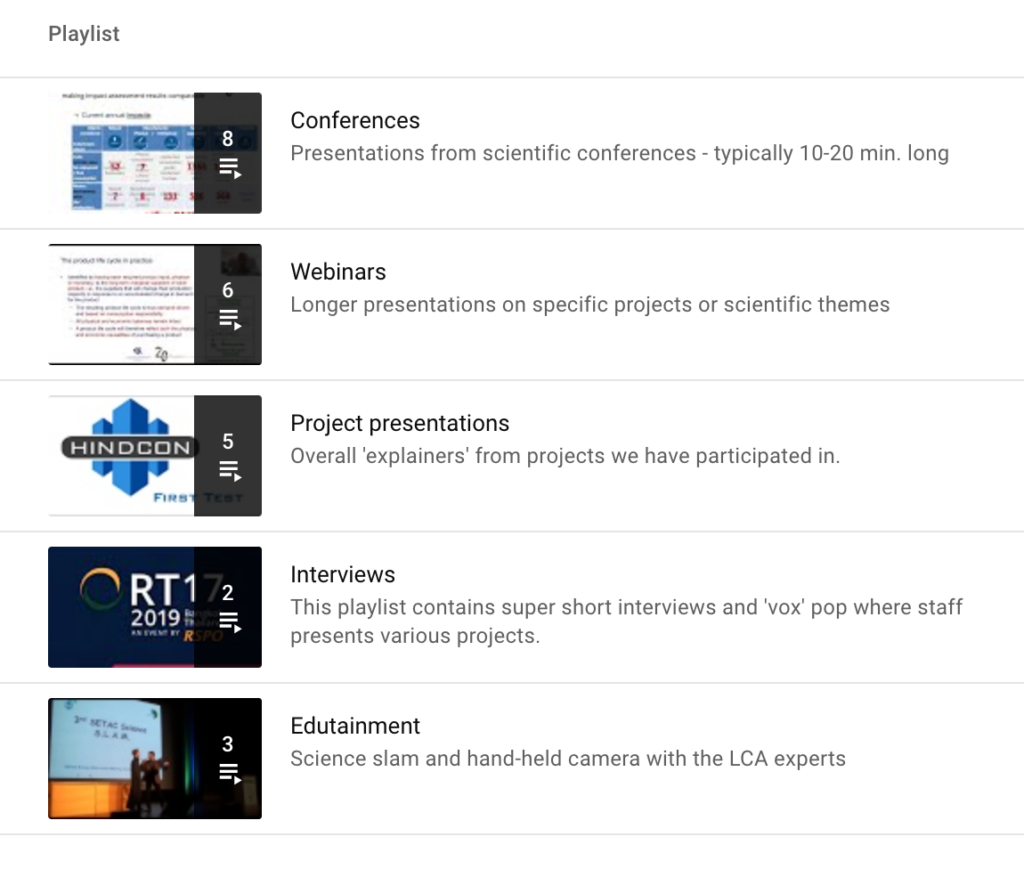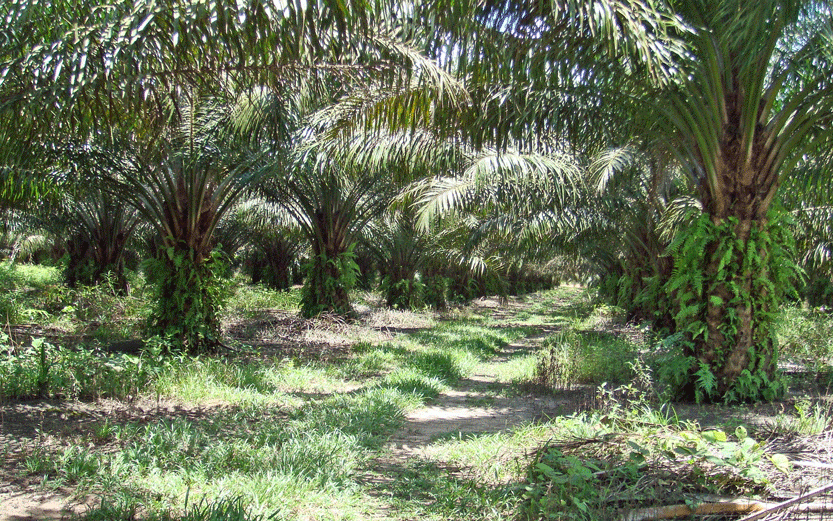Blog
No marketing claims without LCA
January 10, 2022 by Bo Weidema
Cases of greenwashing or misuse of terms, such as ‘sustainable’, have led to bad press for many companies. And in Denmark, such cases also lead to sizable fines. Just before the turn of the year, the Danish consumer Ombudsman released a collection of examples of court decisions as part of a new ‘quick guide’ to companies on how to deal with environmental marketing (Quick guide in Danish).
The many court rulings point to an increasing firmness against ill-founded environmental claims.
The quick guide states (in our translation) that: ’documentation for sustainability claims must be based on a life cycle analysis that shows that the company does not impair the ability of future generations to meet their needs. Health, social and ethical issues must also be considered. It is therefore very difficult to call a product etc. sustainable without being misleading.’
Worth mentioning is also the statement that any claim must be documented and substantiated by independent experts and that ‘convenient’ omissions will not be tolerated. Furthermore CO2-reduction claims are only allowed if the company has a reduction plan in place. Overall, we find there is much sound advice for companies in the new guideline.
As consultants we sometimes get a glimpse of the huge internal pressures from ‘the marketing department’ which ultimately may lead to various green claims despite expert advice. The European Commission in early 2021 commissioned a screening of websites for ‘greenwashing’ and found that half of green claims lack evidence. We hope that these collections of examples can be a good support for those who need arguments to stand the ground against the temptation of simplified ‘green’ claims, also at the international level. LCA is the best tool to provide actual evidence for any environmental or sustainability claim on products, especially if the LCA is done properly, accounting for the entire lifecycle of a product, without flawed system boundaries or inconsistent data sources.
Great data in the limelight
November 3, 2021 by admin
Our CEO, Jannick Schmidt, was invited on stage together with programme manager Michael Minter at yesterday’s prize show in Copenhagen’s Skuespilhuset to accept the Nordic Council Environment Prize 2021 for the “The Big Climate Database”! It is not often that great data attracts such limelight – but that happened last night.

The Big Climate Database was developed by us for the Danish Think Tank CONCITO with funding from the Salling foundations and has catalogued 500 of the most common foods in Denmark and calculated their CO2 footprint. We are so pleased that the Danish Think Tank CONCITO was honoured for their forward-thinking project.
In 2019 the award was won by Greta Thunberg for calling us to action.
Now it is time to get the right data out to people to substantiate their actions.
You can read the jury’s motivation in English here:
https://www.norden.org/en/news/concito-denmarks-green-think-tank-wins-2021-nordic-council-environment-prize

Our YouTube channel
September 8, 2021 by admin
Do you know the 2.-0 LCA consultant’s YouTube channel ? There you can see the various videos where our team presents tools and applications for better decision-making for sustainable development with life cycle assessment (LCA).
An example from today is the presentation at LCM 2021 by Bo Weidema which is made available in a prerecorded version: ‘Three pillars, six capitals, seventeen SDGs, one single score – A unified framework for quantification of progress towards sustainable development’: https://youtu.be/zKW50rN3yzk. Really nerdy stuff, yes. But that’s 2.-0 LCA consultants for you.
Our YouTube channel is organised into 5 playlists (as seen in picture below):
- Conferences
- Webinars
- Project presentations
- Interviews
- Edutainment
You should not expect fanciful film making in our videos – but what you will find is our usual solid, truly science-based solutions for measuring progress towards sustainability with LCA.

Environmental protection or protectionism?
July 12, 2021 by Michele De Rosa
Some of our clients that produce palm oil with the lowest environmental footprints, now give up on the European market and divert their production to the Asian market, currently much less restrictive in terms of environmental performances. This means that the previous achievements made by those companies may now be reverted, to compete in a more aggressive market with lower environmental requirements.
Although some RSPO certified producers of palm oil have already halved their carbon footprint and have set aside land for nature conservation, significantly reducing the impact on biodiversity in addition to reducing the carbon footprint, so that the best-in-class producers achieve a lower footprint than for other vegetable oils (such as rapeseed oil, soybean oil and sunflower oil), these efforts are not recognised by the new EU criteria for determining risk for indirect Land‐Use Change (iLUC).
In December 2018, the revised version of the EU Renewable Energy Directive, known as RED II (‘RED two’), entered into force. In March 2019, the European Commission published a Delegated Regulation supplementing the Directive by introducing criteria for the determination of high and low indirect Land‐Use Change (iLUC) risk associated with the expansion of feedstock production in land with high carbon stock.
The Delegated Regulation identifies iLUC risk based on the past direct land use change from 2008 onwards, regardless of the production system currently implemented, ignoring the geographical differences between producers and, de facto, disregarding the indirect nature of iLUC. The criteria do not trace the cause‐effect relationship between product demand and the indirect land use changes triggered. By not making any distinction between specific production systems, these criteria risk to exclude crops a priori, regardless of the environmental performance of the agricultural system, such as the GHG emissions per unit of product.
Palm oil is produced almost entirely (85%) in Indonesia and Malaysia, countries that in the last 20 years have experienced high deforestation. According to the criteria set by the RED II and detailed by the Delegated Regulation, palm oil from these countries cannot be counted as renewable when measuring target-achievement on the share of renewable energy in EU countries, because of high iLUC risk. In its current form, the iLUC criteria are scientifically unjustifiable and seem to protect the EU vegetable oil producers rather than the environment. This is sad news for RSPO certified companies and a dangerous development for forest and wildlife conservation in Indonesia and Malaysia.
